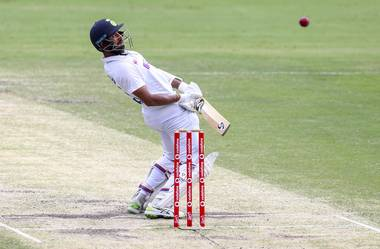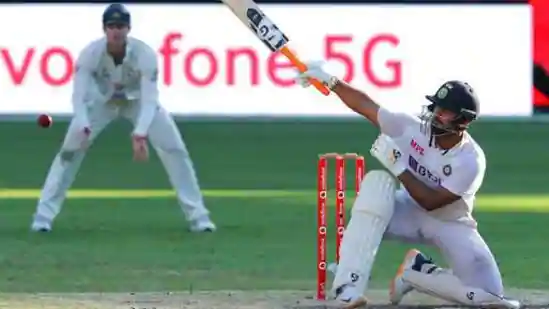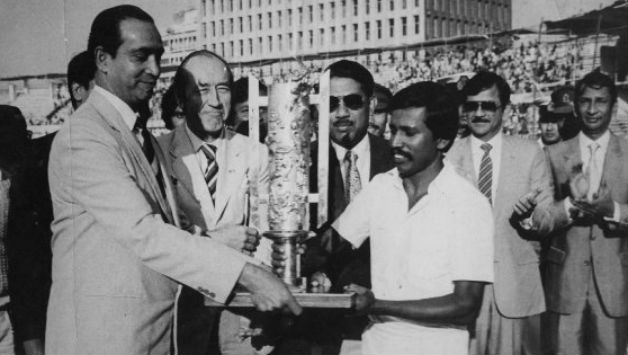
Frank Chester was born on this day, 1895.
Many hailed him as the greatest umpire of all time.
Before the facts and stories, let me remind that Chester was hit by shrapnel during the Great War.
As you can see, the gangrenous right arm had to be amputated from under the elbow.
+
Many hailed him as the greatest umpire of all time.
Before the facts and stories, let me remind that Chester was hit by shrapnel during the Great War.
As you can see, the gangrenous right arm had to be amputated from under the elbow.
+

He used to wear a black leather glove to cover the wooden stump.
Chester was a fine cricketer before the War, talented enough to earn his Worcestershire cap at 16.
He impressed his contemporaries. Jack Hobbs, for example:
+
Chester was a fine cricketer before the War, talented enough to earn his Worcestershire cap at 16.
He impressed his contemporaries. Jack Hobbs, for example:
+
"I played against him in his brief career and am sure he would have been a great England all-rounder."
The injury robbed Chester of a cricket career, but there was no way he was going to give up cricket.
Encouraged by Plum Warner, he took up umpiring.
+
The injury robbed Chester of a cricket career, but there was no way he was going to give up cricket.
Encouraged by Plum Warner, he took up umpiring.
+
Just before his First-Class debut as umpire, he picked up six small pebbles from his mother’s garden at Bushey.
Throughout his career, he would famously use them to count the number of balls.
He ruled both captains out on debut. Johnny Douglas, LBW, and John Daniell, stumped.
+
Throughout his career, he would famously use them to count the number of balls.
He ruled both captains out on debut. Johnny Douglas, LBW, and John Daniell, stumped.
+
Colleague Harry Butt, thirty years senior, was worried: "Boy, you won’t last long as an umpire … If you give skippers out, you sign your death warrant."
Chester did not care.
At Northampton that season they thought he, at 26, was too young to be an county umpire:
+
Chester did not care.
At Northampton that season they thought he, at 26, was too young to be an county umpire:
+
"You’ve made a mistake. This is a First-Class match."
Two years later he made his Test debut, at Lord's, in his trilby hat and the famous glove.
He was only 29.
He became the youngest to officiate in a Test match since 1896. He would remain the youngest till 1965.
+
Two years later he made his Test debut, at Lord's, in his trilby hat and the famous glove.
He was only 29.
He became the youngest to officiate in a Test match since 1896. He would remain the youngest till 1965.
+
How good was Chester?
Reg Sinfield was bowling to Bradman at Trent Bridge in 1938.
The ball very faintly touched the inside edge, hit the pad, went over the stumps and was caught by Les Ames "amidst a jumble of feet, pads and bat".
Bradman overbalanced.
+
Reg Sinfield was bowling to Bradman at Trent Bridge in 1938.
The ball very faintly touched the inside edge, hit the pad, went over the stumps and was caught by Les Ames "amidst a jumble of feet, pads and bat".
Bradman overbalanced.
+
Ames whipped off the bails, then appealed to Emmott Robinson at square leg.
Not out.
Out of desperation, Ames now turned to Chester at the other end.
Chester nonchalantly responded with "out, caught," and turned his back on the scene.
+
Not out.
Out of desperation, Ames now turned to Chester at the other end.
Chester nonchalantly responded with "out, caught," and turned his back on the scene.
+
Bradman would remember this as "one of those remarkable pieces of judgment upon which I base my opinion that Chester was the greatest of all umpires."
Some more assessments of Chester:
EW Swanton: "As nearly infallible as a man could be in his profession".
+
Some more assessments of Chester:
EW Swanton: "As nearly infallible as a man could be in his profession".
+
Joe Hardstaff Sr: "One of the outstanding Test umpires of all time."
Wisden (Viv Jenkins): "His eyes are his most striking feature, quick, alive, ever ready to pounce on the unusual. In another sphere he might have made his mark in the C.I.D."
+
Wisden (Viv Jenkins): "His eyes are his most striking feature, quick, alive, ever ready to pounce on the unusual. In another sphere he might have made his mark in the C.I.D."
+
Hobbs: "As an umpire, he was right on top."
Numbers?
Chester stood in 48 Tests, a world record that stood till 1992.
His 774 First-Class matches are still a world record.
He must have been good.
+
Numbers?
Chester stood in 48 Tests, a world record that stood till 1992.
His 774 First-Class matches are still a world record.
He must have been good.
+
Legacy?
Chester was the first major umpire to start stooping low behind the stumps as the bowler ran in. The practice was subsequently followed across the world.
And then, the anecdotes:
Chester never believed in giving the batsman the benefit of doubt. The logic was simple:
+
Chester was the first major umpire to start stooping low behind the stumps as the bowler ran in. The practice was subsequently followed across the world.
And then, the anecdotes:
Chester never believed in giving the batsman the benefit of doubt. The logic was simple:
+
"There never should be any doubt".
He often showing disdain towards overly optimistic appeals.
He once silenced "a very famous bowler" in a Lord’s Test with "not out, and that was a very bad appeal."
He often cracked jokes about that arm:
+
He often showing disdain towards overly optimistic appeals.
He once silenced "a very famous bowler" in a Lord’s Test with "not out, and that was a very bad appeal."
He often cracked jokes about that arm:
+
"When the stump begins to ache, rain is almost invariably on the way."
At Hove in 1932, a hard-hit straight drive knocked his stump off the socket and carried it some distance towards the boundary. He had to collect it and leave the ground to reattach it.
+
At Hove in 1932, a hard-hit straight drive knocked his stump off the socket and carried it some distance towards the boundary. He had to collect it and leave the ground to reattach it.
+
At Trent Bridge in 1950, Ramadhin bowled Insole off his pads, but Chester was adamant that Insole was leg-before, not bowled.
Logic? He had given Insole out *in the brief time period between the ball hitting the pad and the stumps*.
This contradicted Law 34.2.
+
Logic? He had given Insole out *in the brief time period between the ball hitting the pad and the stumps*.
This contradicted Law 34.2.
+
But the scorecards show Insole as leg-before till today. Perhaps out of respect for Chester.
At his prime, Chester would probably have detested this himself, but by then he was past his prime.
Ulcers left him perennially irritable towards the end.
+
At his prime, Chester would probably have detested this himself, but by then he was past his prime.
Ulcers left him perennially irritable towards the end.
+
He kept running into controversies, and never stood in an Ashes Test after 1953. He should have perhaps quit earlier.
But even on that tour there was a moment when the Australians were playing Oxford University.
+
But even on that tour there was a moment when the Australians were playing Oxford University.
+
A youngster called Richie Benaud appealed for leg-before against a student called Colin Cowdrey.
Not out, said Chester.
Benaud "wasn't certain how umpire Chester could possibly have given it not out."
+
Not out, said Chester.
Benaud "wasn't certain how umpire Chester could possibly have given it not out."
+
But wicketkeeper Gil Langley, who stood closer to the batsman, later explained it to Benaud: "Just the faintest inside edge."
• • •
Missing some Tweet in this thread? You can try to
force a refresh









